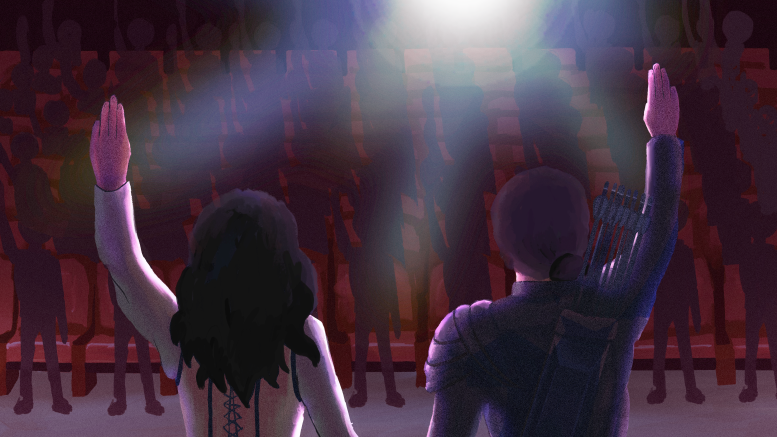Ever since the trailer for The Ballad of Songbirds and Snakes came out this April, the world of The Hunger Games — or as some might call it, my own version of the Roman empire — has been on my mind every day.
But this isn’t something new to me. I first read Suzanne Collins’s The Hunger Games back in 2012 when the first movie was released, which then became the catalyst to my unhealthy hyperfixation on the series that has stuck with me for the last decade.
The excitement for this new prequel has caused a resurgence of new and old fans alike, and while many dystopian novels-turned-movies around the early 2010s have come and gone — most of them leaving you with a bad taste in your mouth — The Hunger Games series has always seemed to do it right.
While the first film has had its fair share of criticism, it can be hard to deny how remarkably the country Panem was brought to life. Although Gary Ross only directed the first movie, his vision for the world, the casting and the overall feeling he gave the film was a great start to kick off the adaptations.
Francis Lawrence knocked it out of the park with the final three movies, the newest prequel, Catching Fire being the most highly regarded. The cinematography, cast performances and overall pacing made for an electrifying watch in theatres.
Although it is impossible to adapt every detail from the book onto the screen, Catching Fire in particular proves how close you can get and still do a phenomenal job. I know for myself and probably many other book lovers, it was greatly appreciated.
Of course, an adaptation can only be as good as its source material. Collins’s powerful mind brought forth a diverse cast of compelling characters and a post-apocalyptic world that often mimics the real world.
Collins writes only from the restricted first-person perspective of the main character, Katniss Everdeen, and this is a defining reason why I think the series is so enthralling. The limited knowledge of what is going on around these characters leaves much up to interpretation. Collins has a way of writing main characters that aren’t exactly likeable, but you find yourself engrossed in their lives and rooting for their victory.
She writes from the theme, the story comes after. One thing I respect is how she isn’t writing for a cash grab. The vast world of Panem and its slew of characters opens the opportunity for endless stories. But Collins seems to write mainly to shed light on heavy modern-day topics.
Ignoring the ironic way the media tried to sensationalize the story’s love triangle aspect, these novels were so much more than that. The themes of struggle for power and control, social inequality and desensitization by the media really hits home, especially now. That’s why I think this franchise is still so popular and relevant in modern times.
With the release of The Ballad of Songbirds and Snakes, it is evident that Collins’s masterful writing techniques are ever more present and are here to send a message. While it can be fun to watch the great filmmaking and performances, there is still a constant reminder that some things you might think are fictional are much closer to reality.



